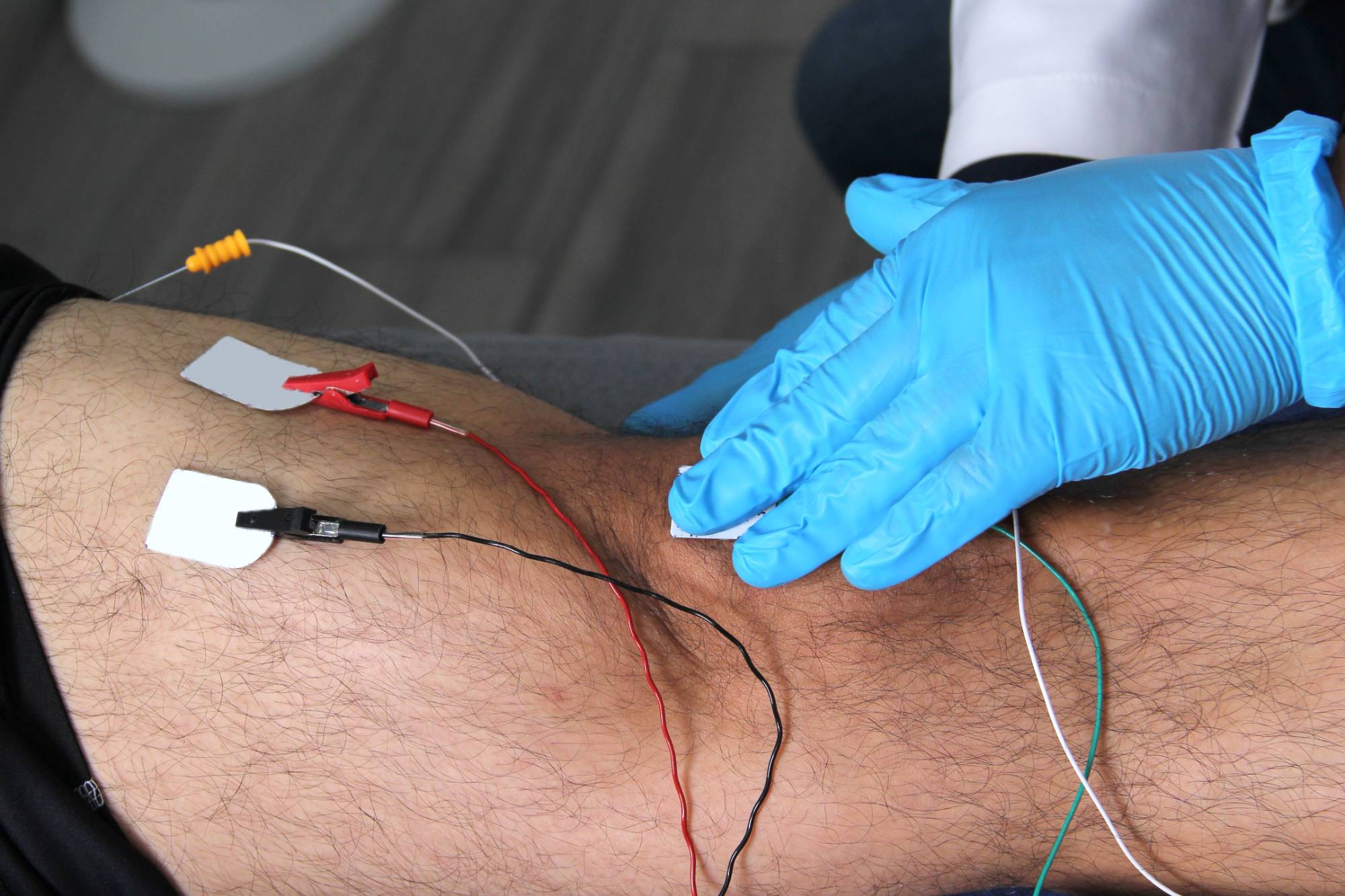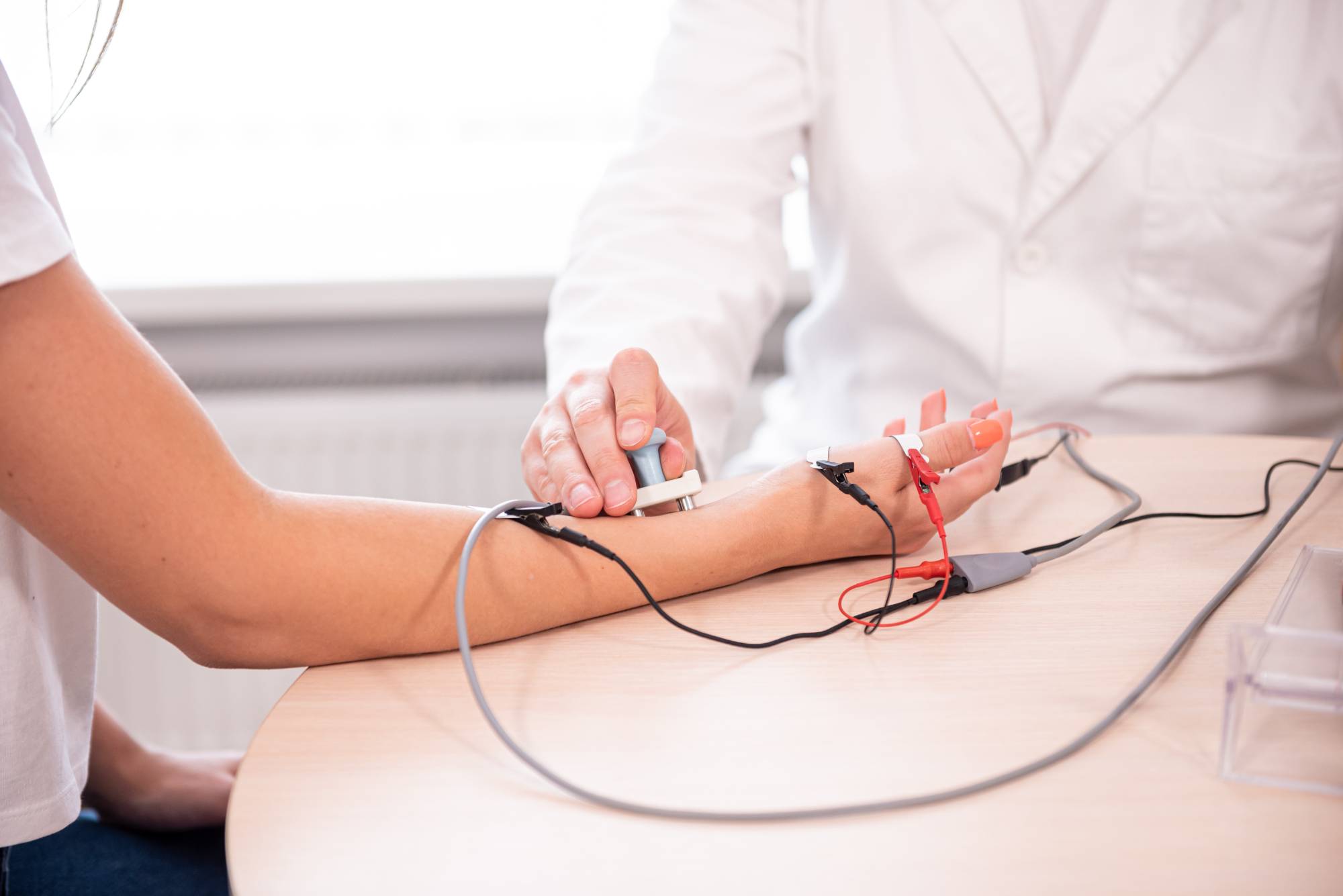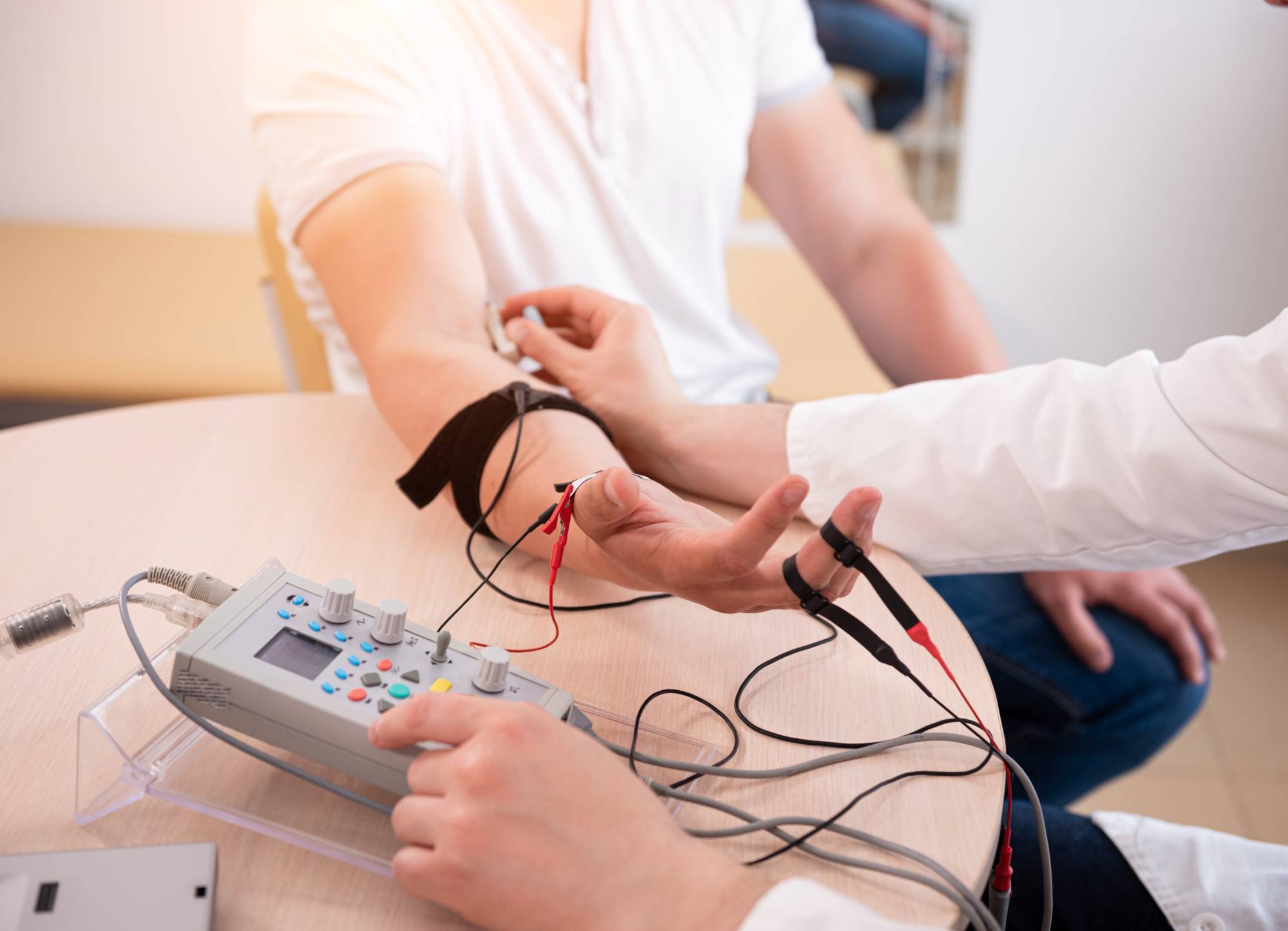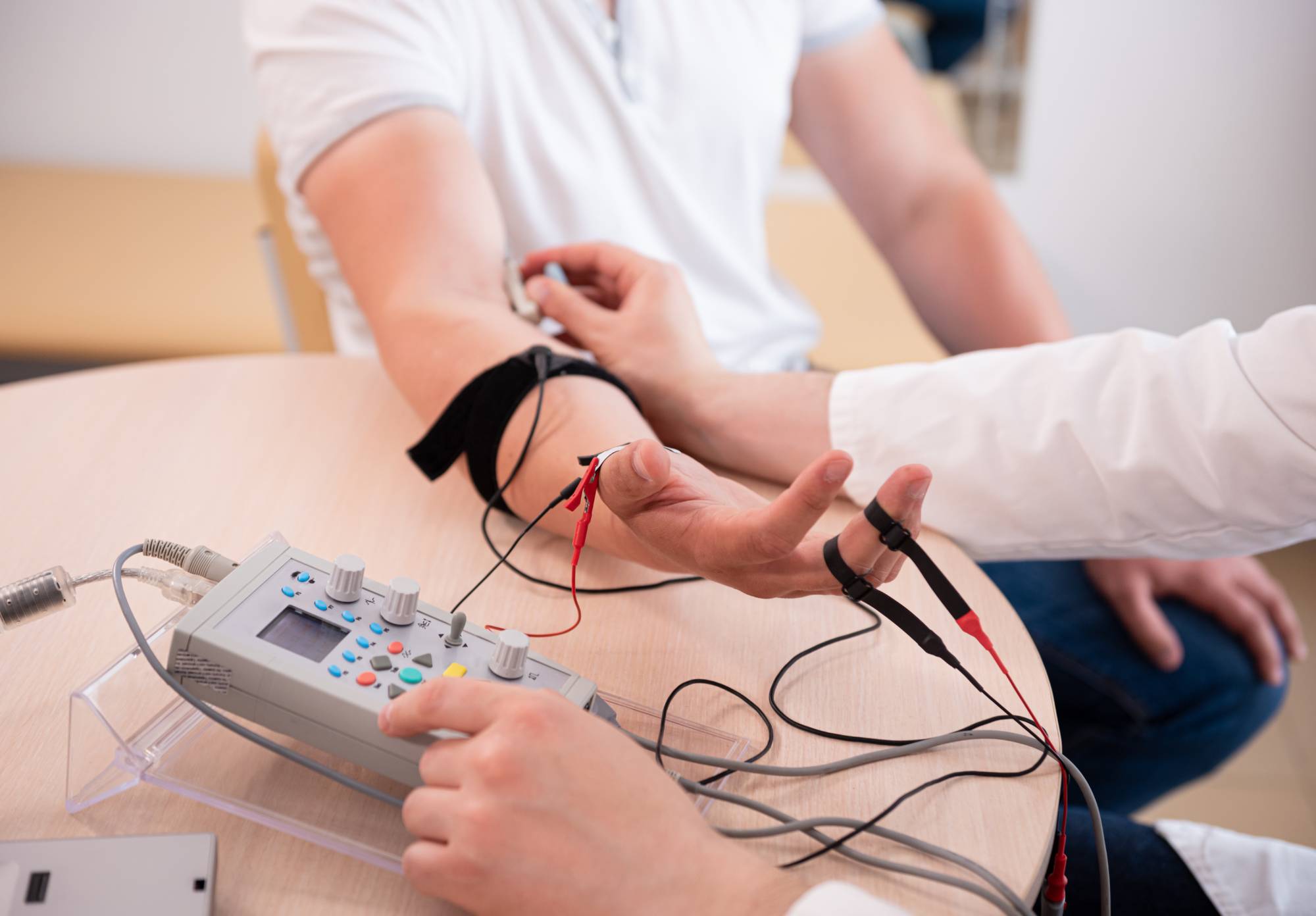Advanced electromyography testing that pinpoints exactly what’s causing your symptoms so you can move forward with confidence.

Reviews

You’ve been dealing with numbness, tingling, or muscle weakness long enough. The uncertainty is almost worse than the symptoms themselves.
EMG testing gives you the definitive answers you need. Within one appointment, you’ll know whether your symptoms stem from nerve damage, muscle disorders, or conditions like carpal tunnel syndrome or sciatica. No more guessing. No more wondering if it’s all in your head.
Once you have a clear diagnosis, everything changes. You can make informed decisions about treatment. You can explain to family what’s actually happening. You can work with your doctor on a plan that targets the real problem instead of just managing symptoms.
NY Spine Medicine has been providing precise diagnostic testing to South Florida patients for years. Our board-certified physicians specialize in spine medicine and understand exactly how nerve and muscle disorders affect your daily life.
We use advanced EMG equipment and proven testing protocols. Every test is performed by our experienced specialists who take time to explain your results clearly. You’re not just getting a test – you’re getting answers from doctors who know how to find them.
Our Allapattah location serves patients throughout Miami-Dade County who need reliable nerve and muscle testing. We accept most insurance plans, and our scheduling is designed around your availability.

Your EMG test starts with a consultation about your symptoms and medical history. Our doctor explains exactly what will happen during the test so you know what to expect.
The nerve conduction study comes first. Small electrodes are placed on your skin to measure how well electrical signals travel through your nerves. This part is quick and feels like mild static electricity.
Next is the electromyography portion. A thin needle electrode is inserted into specific muscles to measure electrical activity. While this sounds uncomfortable, most patients tolerate it well. The entire process typically takes 30-60 minutes.
You’ll get your results immediately after testing. Our doctor reviews the findings with you, explains what they mean in plain language, and discusses next steps for treatment if needed.

Ready to get started?
EMG testing at NY Spine Medicine includes both nerve conduction studies and needle electromyography. This combination provides a complete picture of nerve and muscle function.
Our testing can diagnose conditions like carpal tunnel syndrome, ulnar neuropathy, diabetic neuropathy, radiculopathy, and various muscle disorders. It’s also used to monitor disease progression and treatment effectiveness.
Each test is customized based on your specific symptoms and the areas of concern. Some patients need testing of just one area, while others require more comprehensive evaluation. Our doctor determines the appropriate scope during your consultation.
You’ll receive a detailed report of all findings, and copies are sent to your referring physician. This ensures coordinated care and helps your treatment team make the best decisions about your ongoing care.

New York:
Florida:
Support